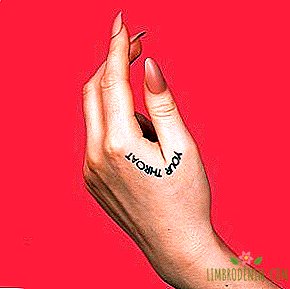"Just don't blame yourself": I survived the death of a child
The fire in Kemerovo claimed the lives of dozens of children; their parents, in addition to incredible pain, have to face bureaucracy and indifference. Dmitry Solovey, a bodybuilding trainer and a former employee of the criminal investigation department, lost a three-year-old son a year and a half ago - Maxim was no longer due to a cancer. We asked Dmitry to tell how he had survived the grief, and to give advice to people who had lost loved ones.
TO
When Max was diagnosed, kidney cancer was no longer at an early stage, there were metastases. I immediately came to the realization that we would lose him. The night after I learned the diagnosis, I sobbed and understood that he would not be soon. Until now, I sometimes feel sorry for having done so many operations, so much painful chemotherapy, stretched
all this for almost half a year - but, perhaps, it allowed us all to come closer together, to be with him a little more. I wanted to hide from everyone, not to communicate with anyone - and this happens with most people. We encountered many parents of sick children and saw that they disappear from the horizon, are removed from social networks, delete photos. People have fears, they think that someone has jinxed them - probably, this is in human nature, a tendency to look for the guilty. For some reason, I had an inner feeling that I should talk about what was happening so that other people could see how it happens. So that those who are faced with the child’s illness know that they are not alone. I led an instagram about Max's illness and did it not for myself, but for others. The wife, on the contrary, went into herself, did not appear anywhere, did not post photos.
In the last days of Max's life, we had to transport him from the oncology department to another, for radiation therapy, and then back - as I understand now, both sides tried to absolve themselves of the responsibility, not to replenish the statistics with the death of a child. As a result, I talked to the head physician and it turned out that the maximum of opportunities was to extend the life for a few more days, but Max would not be better. Then we took him home. I had to sign papers refusing treatment.
Perhaps it would be easier for us parents if the child died in the hospital. This moment is the most painful of all. It remains in my memory how my son dies in my arms, suffocating. He did not understand, he could not even ask for water. The only thing I wanted at that moment was to do something so that he would not experience such torment. It's very scary.
Unfortunately, in all instances you are confronted with a huge bureaucracy. I understand doctors and other personnel, not only medical, they have protocols that must be followed - but first of all you need to be human. For example, they did not want to give out the body of a child from the morgue, because on the certificate in one place there was something corrected, but there was no phrase "corrected to believe." I begged, promised that I would bring the certificate in any necessary form, and nevertheless convinced the employee who is responsible for this - but she went to meet the wording: "Do you understand that this is a matter of jurisdiction?"
The assistant prosecutor, looking into my eyes, said: "How do I know, maybe you did not feed the child, so he died." It is sad and painful, it is indifferent, consumer attitude
I will tell one case: when I worked in the threat, I arrived at the place of death of a teenager from an overdose. He was lying on the floor, and next to him was a syringe with the remnants of heroin - and I took this syringe and hid it in my pocket. Yes, this is also a “cognizable case”, but I didn’t want it to be seen by the parents of this child, they have such a monstrous grief, why should it be aggravated? You must always be human.
There were very difficult moments. According to the law, if there are results of histological examination (and we, naturally, had them), we could demand a waiver of the autopsy. The cause of death was so obvious, and I just felt sorry for his body, he was already completely cut up, during these five months he underwent many operations. But the assistant prosecutor, looking into my eyes, said: "How do I know, maybe you did not feed the child, so he died." It is sad and painful, it is an indifferent, consumer attitude. Even at the funeral there was some kind of problem due to the incorrectly placed stamp. In these moments it is very hard to hold.
I am very sorry for people who lost children in the disaster in Kemerovo. First of all, I want to ask you not to repeat my mistakes. Do not go to yourself, do not resort to alcohol and especially drugs - especially since it does not help. I remember how it is - you drink a liter of vodka, but you still sit sober, and it does not get any easier.
Do not ignore people, communicate with them, although it hurts. It's hard to see friends, it's hard to talk to them - everyone has tears in their eyes, and you also start crying. I went into myself for six months, I did not communicate with anyone, I could not work - but then it came to the realization that it was in vain, that it did not help. On the contrary, if all this time I tried to support my wife, and she did me, it would be easier for both. We must see our parents, brothers and sisters, and friends. The more you are alone, the more the roof goes.
I went into myself for six months, I did not communicate with anyone, I could not work - but then it came to the realization that it was in vain, that it did not help. On the contrary, if all this time I tried to support my wife, and she did me, it would be easier for both
Do not be afraid and do not hesitate to cry. Look for those who can support you, share the pain with you. My wife and I did not seek psychological help - but for many it is a good option. It helped me a lot to talk with a priest or just to come to church, to be there - it was reassuring.
Do not blame yourself. After the death of Max, we began to remember some petty quarrels, to say “it was necessary to live a normal life”, to think that the child was sick, because he had seen us swear. Unfortunately, many couples do not stand the tragedy and part - but it seems to me that such moments should bring together. Do not blame yourself or each other, think that you have done something wrong. Cancer is an emergency, it just appeared and everything, and no one is to blame. Like a fire, it can happen anytime; Of course, there are those guilty of the fact that the security systems did not work, but these are definitely not the parents of the dead children.
Keep on living. Not a single day passes without me thinking about Max and crying - but it still becomes a little easier. Easier, because you continue to live, set new goals, communicate with people. I believe that in memory of our son, we should live better than before: without quarrels, without bad deeds. Plan something, build a house; come to the cemetery and tell Max what is happening in our life. I believe that he is watching us, and I do not want to upset him. Let him see that mom and dad and brother are fine. When I cry, I wipe away the tears, smile and say: "Max, I'm sorry." Imagine that your children see you, and pull yourself together for their sake. The youngest son, Alex, was two years old, he understood everything, he was at home when Max died. He endured it calmly - I think awareness will come later. He really wants him to have a brother or sister again - and we will try to give it to him.
Show maximum patience and calmness in relation to endless pieces of paper. It is difficult, but inevitable. If you need something, keep asking, as a result, usually people still go forward. Contact charitable foundations. We were very helped by the foundation that worked in the hospital. They help many people and many actions - financially, organizationally, and in everyday matters, to bring or take something. We were offered help with organizing a funeral; We didn’t need it, but I think this is relevant for many people - do not reject this help. It is important that the majority of people working in charitable foundations themselves have gone through the loss of loved ones and understand how you feel.
Cover:eugenesergeev - stock.adobe.com





